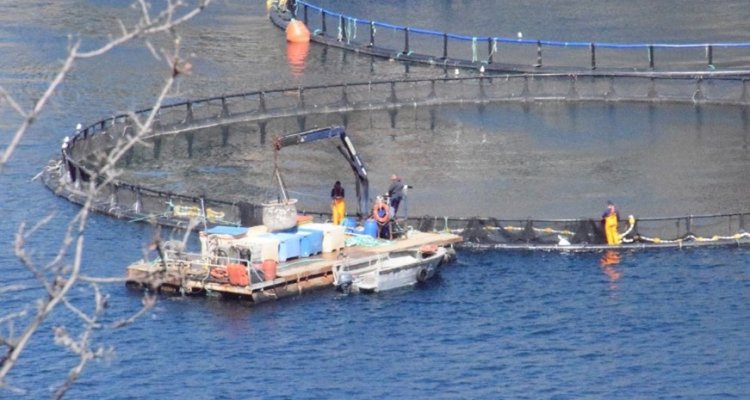
Student information
MSc thesis topic: Impact of Fish Farms on the Environment in the Mediterranean
World fisheries and aquaculture production showed a 45 percent
growth over the years 2000–2021. The majority of the production includes Marine and Fresh water fish. The percentage aquaculture originating fish and captured fish went up from 26% in 2000 to 50% in 2021, from which 4% is produced in Europe. (World Food and Agriculture – Statistical Yearbook 2021)
The rapid increase can be explained by the extensive overfishing of wild-caught fish, and the rapid growth of aquaculture in Asia. Fish farming in the Mediterranean originates from early 1980’s, and is now a common practice in 16 surrounding countries. High consumption demand, means high production in marine fish farms, where the fish feeding without closing the nutrient cycle often causes unbalances in the marine environment by eutrophication and related adverse ecological effects. Therefore, fish farms sites should be carefully selected and induced effects monitored. Especially as these sites are introduced in natural areas where biodiversity should be protected or where eco-tourism is an important source of income. With the increasing availability of high resolution satellite imagery and other geo-datasets the presence of fish farms and other (relevant) environmental variables can be determined including algal blooms.
This project is a collaboration with the Marine Animal Ecology (MAE) group of Wageningen University.
Objectives and Research questions
- Relations fish farm locations and major environmental parameters: temperature, salinity, chlorophyll a, nutrients and others.
- Relations fish farm locations and anthropogenic data: distance to coasts, major cities and ports, vicinity to major shipping routes, Marine Protected Areas and others
Requirements
- Keen interest in Marine Ecology
- Interest in environmental modelling
- Some scripting skills (Python / R)
Literature and information
- Eleni G. Farmaki, Nikolaos S. Thomaidis, Ioannis N. Pasias, Cecile Baulard, Leonidas Papaharisis, Constantinos E. Efstathiou (2014) Environmental impact of intensive aquaculture: Investigation on the accumulation of metals and nutrients in marine sediments of Greece, Science of the Total Environment 485–486 (2014) 554–562
- Fethi Bengil, K. Can Bizsel (2014) Assessing the impact of aquaculture farms using remote sensing: an empirical neural network algorithm for Ildırı Bay, Turkey, Aquacult Environ Interact, Vol. 6: 67–79, 2014.
- M. Phillips (2009) Mariculture Overview, in Encyclopedia of Ocean Sciences (Second Edition), Pages 537-544
- Pablo Trujillo, Chiara Piroddi, Jennifer Jacquet, (2012), Fish Farms at Sea: The Ground Truth from Google Earth, PLoS ONE, Volume 7 | Issue 2 | e30546
- R.S.S. Wu, (1995), The environmental impact of marine fish culture: Towards a sustainable future, Marine Pollution Bulletin, Volume 31, Issues 4–12, Pages 159-166.
Theme(s): Modelling & visualisation; Integrated Land Monitoring